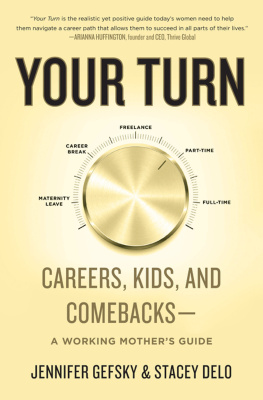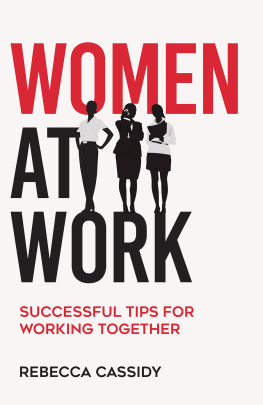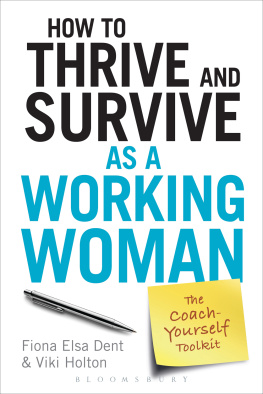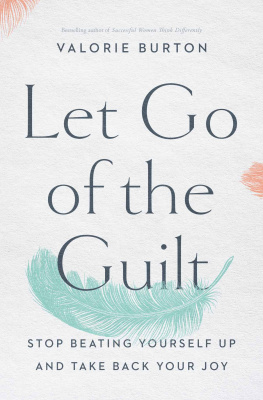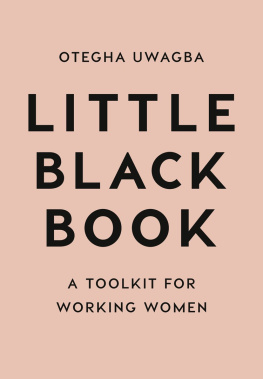Meet Jen
I never thought I would quit my job.
I grew up definitively middle class in Toledo, Ohio. It was not an ideal childhood, with an alcoholic father who was out of my life by the time I was twelve, offering no child support. Thankfully, my mom was an emergency room nurse and was able to provide enough to give my sister and me a stable home, although it wasnt always easy. I learned at an early age that financial security was everything. By the time I was about ten years old, the seed of ambition was planted. I knew I wanted to be able to support myself, and never have to rely on someone else to provide for me. I never wanted to be financially stuck. The struggles I saw my mom endure were not going to happen to me. So I became a worker bee at age eleven, over time holding almost every type of job imaginable: babysitting, ironing neighbors shirts, working at McDonalds, valet parking, waiting tables, serving cocktails, working at the mall, and as a hospital emergency room clerk. I worked and paid my way through college and law school, and was happy to do so.
Thankfully, my determination paid off. I graduated from law school and moved to New York City at the age of twenty-six. I was recruited by a big, fancy law firm and made more money as a first-year associate than my parents ever made. I married my law-school sweetheart, David. My career really started humming and I was recruited to work at Major League Baseball four years later. At the age of thirty, I was selected by Crains New York as a 40 under 40 Rising Star in New York City. Me?! A rising star in New York City? I felt practically invincible. Everything was going according to my plan.
I didnt stop there. Like many young, driven, successful women, I wanted it all: I wanted kids and I wanted my career. After seven years of hard-charging ladder climbing postlaw school, it was time to start a family. I honestly did not think having kids would affect my career in a meaningful way. Looking back, I laugh at my own naivete.
Because then I actually had kids.
I returned to work full-time ten weeks after having my first child, and I didnt really lose my stride. Skip ahead thirteen months and I was pregnant again. This time my pregnancy and maternity leave were tougher. I also had a more senior and demanding position at Major League Baseball. My schedule was untenable: I woke up with the baby at 4 a.m., was out the door for work by 6:30 a.m., and was in the office by 8 a.m. with a full day of stressful work ahead of me. Cue the eye-rolls from colleagues when I ran to catch the 5:45 p.m. train to relieve the babysitter by 7:00. By the time I crashed into bed each night I was mentally and physically exhausted.
Why couldnt I handle this? What was I doing wrong? I felt I was failing in every aspect of my lifetired at home and just getting by at work. It wasnt a viable situation. So, twelve years into my career, I did the thing that I never thought I would doI quit.
The worker bee stopped working. The pressure was intense, so I wasnt thinking about my professional future when I quit. I was thinking about how I was going to get through the next day. I didnt have this grand plan of how and when I was going to get back into the workforce. I thought my years of work, intelligence, and talent would speak for themselves when I did decide to go back to work. If I decided to go back. How shortsighted that seems now. I never calculated the true cost of stepping back.
Thousands of women who leave the workforce dont have a plan to get back in. There are 3.6 million women on the career sidelinesand we know 93 percent of those who have taken a career break will attempt to return to the workforce. Their children are in school; economically, they really need to help support the family again. But many dont even know where to begin, and are afraid that it might be too late.
Is it impossible to get back in? No, but it can certainly feel that way. Is it easy? No, definitely not. Does it require some soul-searching, creativity, and good old-fashioned grit? Yes, yes, yes. The good news is that the workforce is showing positive signs of wanting to bring these women back. But the reality of bringing women back on board or making sure they dont leave in the first place is still quite thorny.
It was an extremely difficult time in my life when I was out of the workforce and trying to figure out what to do. Heres how I turned it around: I just started doing things. I accepted volunteer work where I used skills transferable to the workplace. I networked with anyone and everyonefriends, former business colleagues, people on the soccer sidelines. I took classes. I learned the different social platforms (hello LinkedIn!) and started building my personal brand. I researched companies. My work skills came back to life much more quickly than I had anticipated. My ambitious self was still there. And when I returned to corporate America, I realized that my career break had actually made me better and more productive in the officeI was more efficient, calmer, positive, and collaborative. All of these skills were honed from being a parent and caregiver.
Honestly, I dont regret quitting. Not for a second. It happened to be the right move for me and my family that I got to know and care for my kids in a different way.
However, I do regret pushing myself to a breaking point and convincing myself that quitting was the only option. I regret not having a transition plan. I regret not knowing the full implications of what quitting would mean for my family and my future earnings. I regret not talking to other women who wrangled with these decisions, too, to get their advice on other possible work options and how to make the road back a little easier. I regret not having anyone helping me figure out what the hell to do. And Im on a mission to help other women not make my same mistakes.
Meet Stacey
I never thought I would quit my job.
I was walking (running) to the bus one morning when the assistant to my bosss boss called and asked, Can you take a call from Alan? She patched me through to Alan Murray, head of digital at the Wall Street Journal at the time, who asked if I would be interested in moving from San Francisco to New York to host a new live show on WSJ.com about technology. As a journalist, it was everything I had dreamed of and worked toward for my careerthe opportunity to host a live show!
I was ecstatic. I told Alan I was so honored and would love to do it, but needed to talk with my husband, Gabe, first. And then I crashed back to earth. We had just bought a house in San Francisco. And I was pregnant. And not a single soul at my work knew.
That night, my husband, God love him, told me I had to gothat it was everything I had worked for and I needed to seize the moment.
The next day, I picked up the phone to call Alan and told him that, yes, I would love to launch the show in New York, but that I was pregnant (surprise!), so after the show got off the ground, I wanted to come back to San Francisco to have the baby and then run the show from the West Coast. I was nervous, naturally. Would they want me as the host as my belly grew? This was my first pregnancyI was completely clueless about all of it. Would they think it was best for me to stay in San Francisco given that I was pregnant? Deep down I knew I needed to ask.
Alan, I promise Ill make it the best show ever...
He said fine. So I moved to New York in January 2010 alone, while my husband stayed in San Francisco to get the house ready for the baby. I planned to go back frequently before my May due date, but my body had other plans. I had placenta previa, a pregnancy condition that can lead to excessive bleeding, and the doctor dissuaded me from too much flying (she suggested taking the train!). So I flew out once and stayed put in New York, got a new team of doctors, and worked and worked and loved every second of the experience, freezing weather and all.

